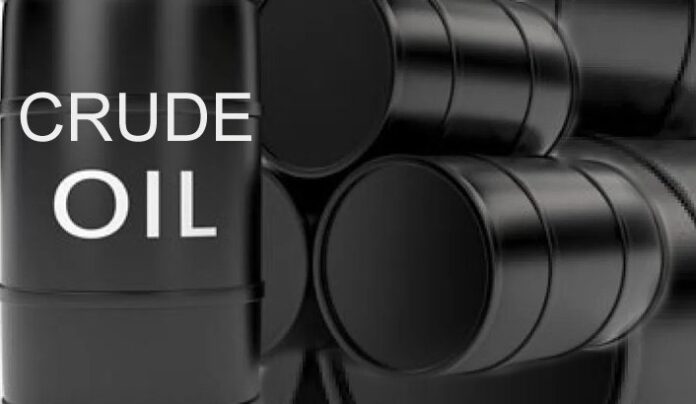Following the world economy’s recovery from the COVID-19 epidemic, global oil prices surged in 2021, creating a rise in demand for petroleum products.
In addition, gas prices skyrocketed in early 2022 as a result of news that Russia, one of the world’s largest oil producers and exporters, was deploying soldiers along its border with Ukraine.
Despite diplomatic efforts, the oil market’s worries became a reality when Russia invaded on February 24. Following the invasion, the United States and its allies imposed harsh economic penalties on Russia, including a U.S. ban on Russian oil imports.
As a result, petrol prices skyrocketed to decade highs across the world due to supply fears. The price of both Brent and West Texas Intermediate (WTI) crude oil increased to more than $100 per barrel in February after the Russian invasion of Ukraine.
It should be noted that gas prices rise and fall in lockstep with crude oil prices, though not always in the same way or to the same extent. Because oil is a worldwide commodity, its price is mostly driven by global supply and demand. Prices fall when supply exceeds demand. In contrast, when demand exceeds supply, prices rise. As stated earlier, high gas prices are mostly the result of high crude oil prices (see Figure 1). Oil costs generally account for 43 percent of the cost of regular gasoline, with the remaining 57 percent accounted for by distribution and marketing, refining, and taxes worldwide.
However, these inputs costs do not fluctuate as frequently as oil prices. Therefore, when oil prices rise, the price of petrol at the pump will eventually rise as well. Over time, a $10 increase in oil prices (per barrel) correlates to a $0.25 increase in petrol prices (per gallon)[1]. In line with the above discussion, retail gasoline and diesel prices have soared to record highs in many countries across the world.
According to the federal Energy Information Administration (EIA), regular gas costs, on average, 58.7% more than it did a year ago this time.
The average U.S. gas price is now $4.17, the highest ever, and in some places, it’s already well into the $5 and even $6 range. In some cities, including Los Angeles and San Francisco, average gas prices have hit $5 for regular fuel—and there are even some stations selling premium for over $7 a gallon[2]. In Europe, soaring petrol prices have become the new normal. The surging price of crude oil on world markets has led to the biggest ever weekly jump in gasoline prices at some service stations around Europe, pushing them in some cases above 2 euros for a litre ($8.25/gallon) of unleaded fuel. German motoring organisation ADAC estimated that diesel prices had spiked a massive 28% in six days from March 1[3].
In the UK, motorists are now being forced to pay an average of £1.65 a litre for unleaded. With greater pressure on diesel prices, UK drivers must pay even more, and latest Royal Automobile Club (RAC) figures report an average cost of £1.76 a litre. However, many motorists are already paying significantly higher costs per litre than those averages, with reports of diesel reaching a staggering £2.07 a litre, and premium grade petrol prices also breaking the £2 a litre barrier on certain forecourts[4].
Across Africa, fuel prices have reached all-time highs. The government of South Africa is considering the introduction of gasoline-price cap and also ration the amount of fuel sold to motorists to mitigate the impact of rising oil prices. South Africans living inland are currently paying on average R23.75 for 95 Unleaded and R23.50 for 93 ULP, and R23.03 for 95 ULP for those at the coast. South Africa’s national statistics institute said fuel prices in December 2021 had risen by 40.5 per cent compared to the previous year.
Some economists have even predicted that the worst-case scenario could be eventual fuel prices in the region of R40 per litre[1]. Fuel prices in Burkina Faso have also increased by 8 percent. Elsewhere in Burundi, the government raised fuel prices by over 13 percent in January. Burundi is the costliest African country for purchasing a litre of gasoline, trailing just the Central African Republic, Zimbabwe, and Senegal. At the same time, petrol prices in the Democratic Republic of Congo (DRC) have risen by 3,000 Congolese francs ($1.50)[2]. From a January average of 288 naira ($0.70) per litre, diesel now sells for over N700 ($1.69) per litre in Nigeria. Transportation costs have increased sharply since, with flight tickets reaching a N50,000 ($120) flat rate for one-way trips, from about $80 in February due to scarce aviation fuel[3]. The Rwanda Utilities Regulatory Authority (RURA) has also increased pump prices for gasoline and diesel, attributing the changes to instability of oil prices in the global market, and also in line with reviewing prices every two months.
According to the statement, petrol has increased to 1,256 Rwf per litre from Rwf 1,225 while diesel increased from Rwf 1,140 to Rwf 1,201[4] as at March 6, 2022.
Nevertheless, due to its importance, gas prices have the potential to have a big impact on the economy. When customers spend more or less on gasoline, they have less money to spend on other products and services, which can have an impact on overall demand. Also, given that gasoline prices are determined by the price of crude oil, therefore, fluctuations in crude oil prices can impact inflation as seen in several countries around the world.

PROFILE: FRANK BANNOR, Ph.D.
Frank Bannor has successfully submitted his Ph.D. in Economics thesis to the University of Johannesburg, South Africa, and is awaiting graduation. Frank also holds a Master of Science in Economics, a Bachelor of Science in Economics and Statistics (First Class Honours) awarded by the Kwame Nkrumah University Science and Technology (KNUST) – Ghana, a Higher National Diploma (HND) in Statistics from the Accra Technical University, Ghana and a Ph.D. non-degree
program covering Impact Assessment and Climate Economics at the Norwegian University of Life Sciences (NMBU).
Frank also holds a certificate in Land Economics and Governance awarded by the University of Cape Town, Cape Town, South Africa; a certificate in PhD Level Training Course on Stated Preferences Methods & Experimental Economics awarded by the University of Pretoria, Pretoria, South Africa; a Diploma in Environmental Impact Assessments in the Oil & Gas Industry and Compliance Monitoring awarded by the Norwegian Climate and Pollution Agency and the
Norwegian Directorate for Nature Management; a certificate in Mineral Policy and Contract Negotiations granted by the African Institute for Economic Development and Planning (IDEP), and the University of Johannesburg (UJ) South Africa; and a Certificate in Land Policy in a Development Context awarded by the African Institute for Economic Development and Planning(IDEP), Dakar, Senegal.
Frank Bannor possesses about eight (8) years of experience. These include lecturing at prestigious international universities and senior roles in a policy think tank. Some of the positions he has occupied include Lecturer, Monetary & Public Economics at the University of Johannesburg, South Africa. Lecturer, Micro & Macroeconomics at the IIE-MSA (formerly Monash University), Johannesburg, South Africa, and Researcher at the Public and Environmental Economics Research Centre (PEERC), School of Economics, University of Johannesburg, South Africa.
Frank has several publications to his credit. The most recent being, “CO2 emissions and economic
growth: Assessing the heterogeneous effects across climate regimes in Africa”, published in the
Science of The Total Environment, a Q1 Journal with an Impact Factor of 7.963










































